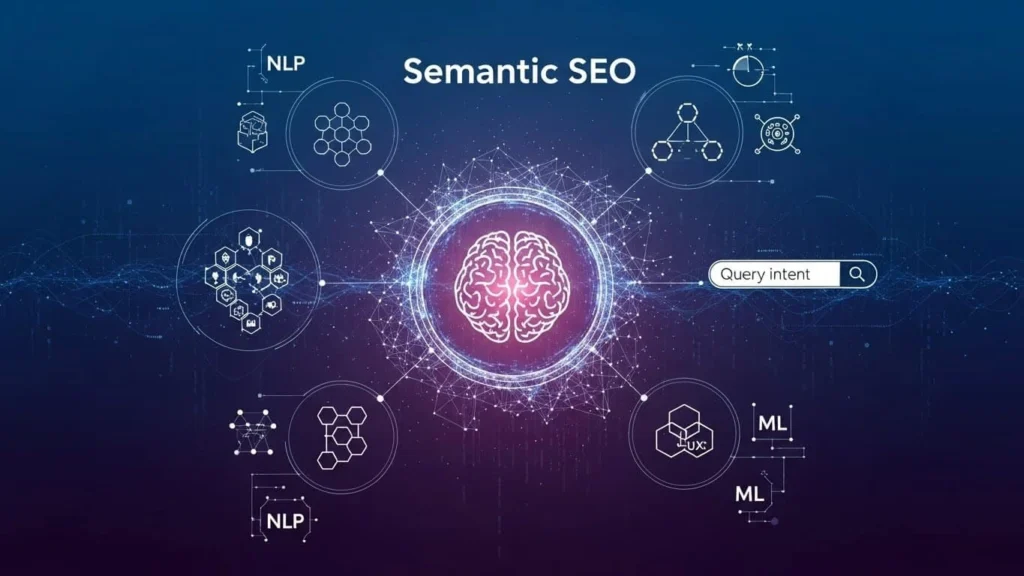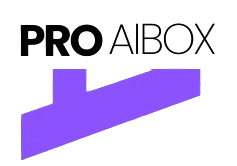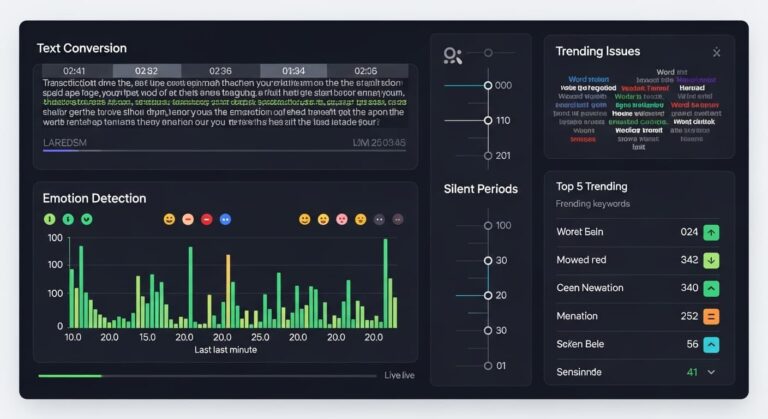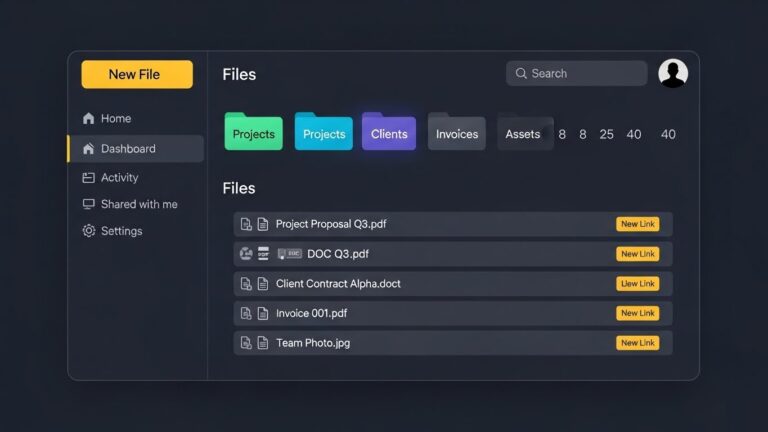As search engines evolve from simple link indexes into sophisticated reasoning engines the strategies used to gain visibility are changing. Understanding how to rank in AI search is the process of optimizing digital content so that artificial intelligence models such as Large Language Models (LLMs) and Generative Search Engines can accurately identify, summarize and cite your information as a primary source.
Unlike traditional search engines that rely primarily on keyword matching, AI search evaluates the meaning, context and relevance of content to provide precise answers to user queries. Ranking in AI search involves creating clear, credible and structured content that matches the intent and understanding of AI-powered search systems.
Ranking in AI search means creating content that AI systems recognize as the most relevant and reliable answer to a user’s question.
What is AI Search?

AI Search (also known as Generative Search) refers to a search experience where an AI provides a direct synthesized answer to a user’s query instead of just a list of blue links. Examples include Google’s AI Overviews, Perplexity AI and SearchGPT.
To rank in this environment, a website must focus on Generative Engine Optimization (GEO). This is the practice of making content highly “consumable” for machines while remaining authoritative for humans.
The Core Definition
At its simplest level, ranking in AI search means becoming the preferred data source that an AI model uses to construct its response.
- Traditional search = “Which pages contain these words?”
- AI search = “Which content best explains this idea?”
How AI Search Works: The Retrieval Process
Unlike traditional SEO, which focuses on keywords and backlinks to determine “popularity” AI search focuses on relevance and reliability. The process generally follows a three-step cycle:
- Retrieval: The AI scans the web for the most relevant “chunks” of information related to a query.
- Synthesis: The AI reads those chunks and merges them into a coherent paragraph.
- Citation: The AI provides links to the sources it used to build that answer.
Key Strategies: How to Rank in AI Search
The Answer-First Structure
AI models are programmed to find the most direct answer to a question. To rank, you should use the “Inverted Pyramid” style of writing.
- The Definition Hook: Start your article or section with a 50-word summary that directly answers the main question.
- Clear Headings: Use H2 and H3 tags phrased as questions (e.g., “How do I optimize for LLMs?”).
Entity-Based Content
AI understands the world through Entities (people, places, things and concepts) and the relationships between them.
- Contextual Depth: If writing about “Climate Change” include related entities like “Carbon Sequestration” “Greenhouse Gases” and “Paris Agreement.”
- Schema Markup: Use technical code (JSON-LD) to tell the AI exactly what your data represents whether it’s a recipe, a product or a professional biography.
Data Density and Evidence
AI search engines prioritize “citable” facts. Content that includes original statistics, expert quotes or unique data points is more likely to be featured than generic commentary.
- Tables and Lists: Format complex data into Markdown tables. AI models find these easier to parse than long-form prose.
Use Structured Data (Schema)
AI crawlers prefer machine-readable signals.
- Add FAQ schema to your blog FAQs.
- Use HowTo schema if your article has step-by-step guides.
- Add Article schema with author info and publish date.
Tools: You don’t need coding use free tools like Merkle’s Schema Markup Generator or plugins like Rank Math / Yoast.
Target Conversational, Long-Tail Searches
Voice and AI queries are longer and more natural.
- Instead of “best AI tools”, optimize for:
- “What are the best AI tools for small businesses in 2025?”
- “Which AI tools can help rank higher in search?”
Trick: Write in spoken language (short sentences, active voice). Pretend you’re answering someone in a chat.
Different Contexts of AI Search Ranking

Business and Organizational Relevance
For businesses, ranking in AI search is the modern equivalent of “brand awareness.” If an AI assistant recommends your product when a user asks for “the best eco-friendly sneakers” it carries more weight than a traditional advertisement. It acts as a digital endorsement.
Creative and Intellectual Use
For researchers and creators, being cited by AI search engines establishes intellectual authority. It ensures that your original ideas are integrated into the global “knowledge graph” making you a foundational reference point in your field.
Systemic and Cultural Context
Systemically, AI search is shifting the internet toward a “winner-takes-most” model. Since AI summaries usually cite only 3 to 5 sources, the competition for those top spots is more intense than the traditional “Page 1” of Google.
Symbolic or Conceptual Interpretation
Conceptually, ranking in AI search represents the shift from traditional, keyword-driven visibility to meaning-driven visibility. It signals a move toward understanding-based systems, where relevance is judged by context, accuracy and helpfulness rather than popularity or keyword density.
Comparison: Traditional SEO vs. AI Search (GEO)
| Feature | Traditional SEO | AI Search (GEO) |
| Primary Goal | Rank #1 in blue links | Be cited in the AI summary |
| Focus | Keywords and Backlinks | Entities and Citations |
| User Intent | Clicks to a website | Direct information delivery |
| Content Style | Long-form, keyword-optimized | Concise, data-rich, “extractable” |
Insider Tricks That Work (Not Everyone Talks About These)
- Entity Optimization: Weave in related names, places, and concepts. Example: If you write about AI SEO, also mention “Google AI Overviews,” “Perplexity,” “E-E-A-T,” etc. AI sees your content as a topic hub.
- Seed Mentions in Communities: Share insights on Reddit/LinkedIn. AI scrapes this and treats your content as more credible.
- AI + Human Hybrid Content: Let AI help with drafting, but always add your own insights, case studies, or personal take. That’s what makes AI choose your content over generic stuff.
Core Strategies for Ranking in AI Search
Even as a beginner, understanding the main principles can help content be AI-friendly:
| Principle | Explanation |
|---|---|
| Clear Definitions | Explain ideas simply and directly for AI to parse and summarize. |
| Structured Content | Use headings, bullet points, and short paragraphs for clarity. |
| Authority & Credibility | Cite trustworthy sources to signal reliability. |
| Answer-Focused Writing | Provide concise answers to likely questions. |
| Semantic Relevance | Use related words and phrases naturally, not just the main keyword. |
| Freshness & Accuracy | Update content regularly to remain a trusted reference. |
Refinements Based on 2026 Search Trends

1. Add “Extraction Efficiency” to Technical SEO In 2026, AI crawlers (like GPTBot or PerplexityBot) prioritize pages that are not just fast but “clean.”
- Reviewer Tip: Mention the importance of HTML5 Semantic Tags (like
<article>,<section>, and<aside>). These tags act as a roadmap for AI models to distinguish your core “answer” from sidebar distractions or ads.
2. Quantify “Data Density” You mentioned that AI prefers citable facts. Recent studies show that content with original statistics or case studies is 40% more likely to be cited by Perplexity and SearchGPT.
- Reviewer Tip: Add a sentence under “Data Density” suggesting that every 800 words of content should ideally contain at least one unique data point or expert quote to trigger a citation.
3. Visualizing the Process Since this is a “beginner-friendly explainer,” a visual representation of how an AI “retrieves” and “synthesizes” data would make the article much more linkable as a reference.
Conclusion:
As we move further into the era of generative discovery, understanding how to rank in AI search is no longer a niche technical skill it is the new standard for digital communication. The transition from “searching for links” to “asking for answers” fundamentally rewards content that is clear, structured and deeply authoritative.
Success in this new landscape does not require chasing algorithms or exploiting loopholes. Instead, it requires a commitment to information utility. By organizing your knowledge in a way that is easily digestible for machines while remaining genuinely helpful for humans you ensure that your voice remains part of the global conversation.
The digital landscape will continue to shift, but the core principle of AI search remains constant: the most reliable and accessible answer wins the citation.
FAQs
What is the difference between SEO and AI Search optimization?
Traditional SEO focuses on driving traffic through search engine results pages via keywords. AI Search optimization (or GEO) focuses on providing the specific data or answers that an AI model needs to generate its own response.
Do backlinks still matter for AI search?
Yes, but their role has changed. In AI search, backlinks serve as a “trust signal.” If high-authority sites link to you, the AI is more likely to trust your information as factual and safe to cite.
How do I know if I am ranking in AI search?
Currently, the best way is to “self-test.” Type queries related to your topic into AI engines like Perplexity or Google Gemini and see if your website is listed in the citations or sources.
Does AI prefer short or long content?
AI prefers comprehensive content. While the summary it provides is short, it chooses that summary from sources that provide the most complete and accurate context on a topic.
Does keyword stuffing help with AI search?
No. AI search prioritizes semantic relevance and user intent over repeated keywords.
Why is ranking in AI search important?
Ranking well ensures your content is discoverable, trusted and cited by AI systems, increasing its visibility to readers, researchers, or customers.








2 Comments